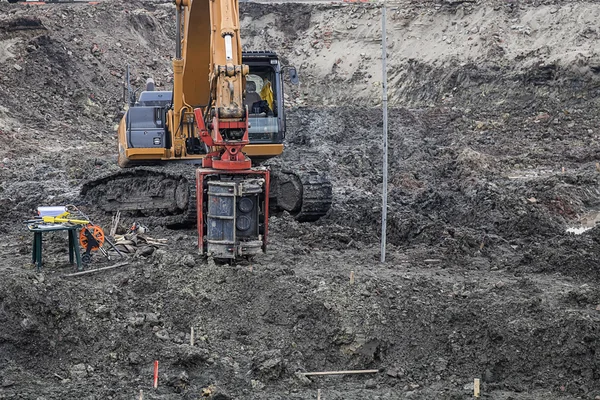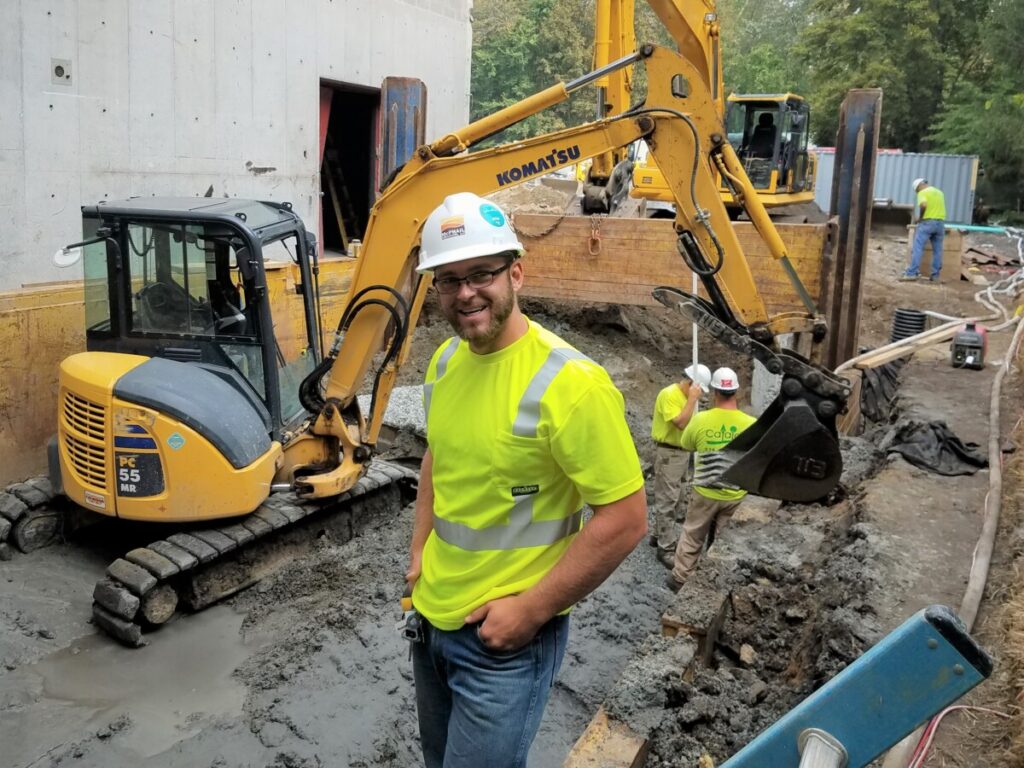Why the Geotechnical Industry Requirements Cutting-edge Solutions Now
Why the Geotechnical Industry Requirements Cutting-edge Solutions Now
Blog Article
A Thorough Review of the Secret Duties of Geotechnical Engineers in Website Characterization and Ground Renovation Methods for Engineering Solutions
Geotechnical designers are integral to the effective execution of engineering jobs, entrusted with the essential duties of website characterization and the application of ground renovation strategies. Their work includes a comprehensive analysis of subsurface problems, using various screening techniques to identify dirt and rock homes.
Function of Geotechnical Engineers
Geotechnical designers play a crucial role in the design and building of framework by analyzing the behavior of dirt and rock underneath the surface - geotechnical eng. Their duties include evaluating subsurface conditions to inform layout decisions that make certain architectural security and security. By conducting thorough evaluations of dirt properties, consisting of shear stamina, compressibility, and leaks in the structure, geotechnical engineers give critical data that influences the choice of appropriate building and construction materials and methods
In addition to analyzing soil auto mechanics, geotechnical engineers are tasked with determining prospective dangers such as landslides, sinkholes, and ground settlements. Their proficiency aids mitigate risks connected with these geotechnical phenomena, consequently safeguarding both the environment and public safety and security. They also work together very closely with various other design self-controls, making certain that geotechnical considerations are incorporated into total job layout.
Furthermore, geotechnical designers participate in the evaluation of existing structures, supplying suggestions for retrofitting and repair services when required. Their thorough understanding of soil-structure interaction is necessary for the development of lasting facilities remedies. On the whole, the duty of geotechnical engineers is indispensable to the effective understanding of building tasks, guaranteeing they are secure, durable, and certified with regulative standards.

Site Characterization Procedures
Efficient website characterization processes are necessary for recognizing the subsurface problems that affect job design and execution. Geotechnical designers use a systematic technique to gather, review, and translate data relating to rock, soil, and groundwater qualities. This process starts with an extensive evaluation of existing literary works and archaeological site information, giving insights right into previous website problems and prospective challenges.

Information evaluation adheres to fieldwork, where designers make use of geostatistical approaches to interpret findings and develop geological designs. Via thorough website characterization, geotechnical engineers lay the groundwork for successful job execution, lessening unpredicted difficulties and maximizing source allocation.
Dirt and Rock Screening Approaches
While understanding subsurface problems is important, the selection of proper soil and rock testing techniques is just as important for precise analysis and layout. Geotechnical engineers use a selection of screening strategies to assess the mechanical and physical buildings of dirt and rock materials.
Research laboratory examinations, such as Atterberg limitations, grain size analysis, and unconfined compressive his response toughness tests, supply vital information on soil habits under different dampness problems and packing situations. These examinations aid establish dirt classification and predict negotiation or shear strength characteristics crucial for foundation layout.
In-situ testing approaches, including Criterion Infiltration Examinations (SPT), Cone Penetration Tests (CPT), and stress meter tests, enable engineers to collect information directly from the ground. These approaches use useful insights into the soil's density, consistency, and stratification without the demand for comprehensive tasting.
Rock screening normally includes core sampling and laboratory evaluation to examine buildings like uniaxial compressive stamina and rock quality classification (RQD) With each other, these dirt and rock testing approaches allow geotechnical engineers to make enlightened decisions relating to site-specific obstacles, ensuring the safety and security and stability of engineering options.
Ground Renovation Methods
Ground renovation methods are essential for boosting the design buildings of soil, therefore boosting its load-bearing capacity and lowering negotiation. These methods are essential in resolving challenges provided by troublesome or weak dirts, which can substantially impact the stability and durability of frameworks.
Different ground enhancement strategies are utilized, consisting of compaction, grouting, and soil stabilization. Grouting, on the other hand, involves injecting a fluid product right into the ground to fill spaces and boost soil cohesion.
Soil stabilization encompasses a range of methods, from chemical ingredients to mechanical therapies, targeted at boosting the dirt's resistance to disintegration and contortion. Methods such as lime stablizing or concrete blending alter the residential or commercial properties of the dirt at a particle degree, improving its general performance.
Importance of Geotechnical Assessments
Geotechnical assessments play an important duty in the preparation and style of design tasks, as they give important information regarding the subsurface check out this site conditions. Understanding soil properties, rock developments, groundwater degrees, and possible geohazards is crucial for ensuring the security and security of frameworks. These analyses enable engineers to make educated choices pertaining to website selection, design specifications, and construction approaches.
The value of geotechnical evaluations extends past initial project stages; they are crucial in threat management and cost performance. By identifying prospective problems early, such as soil negotiation, incline instability, or too much groundwater, designers can develop appropriate mitigation techniques, lowering the likelihood of costly hold-ups and architectural failings. Additionally, these evaluations support conformity with regulative demands and improve the sustainability of engineering techniques.

Verdict
In verdict, geotechnical engineers are important to making sure the security and security of design tasks via thorough site characterization and ground renovation strategies. geotechnical eng. Their methodical approach to analyzing subsurface conditions, combined with their referrals for reliable ground modification, dramatically boosts soil properties and load-bearing capacity. The knowledge of geotechnical engineers not just helps with educated project preparation however likewise makes sure compliance with guidelines and promotes efficient communication amongst stakeholders, ultimately contributing to successful engineering end results
Geotechnical engineers play a crucial duty in the design and construction of infrastructure by analyzing the actions of soil and rock under the surface area. By conducting thorough evaluations of dirt properties, more including shear compressibility, toughness, and leaks in the structure, geotechnical engineers give vital information that influences the option of suitable construction materials and techniques.
In addition to evaluating dirt technicians, geotechnical engineers are entrusted with recognizing potential risks such as landslides, sinkholes, and ground negotiations. Geotechnical engineers use an organized strategy to gather, review, and translate data regarding dirt, rock, and groundwater features. By determining prospective issues early, such as dirt settlement, incline instability, or extreme groundwater, designers can design ideal mitigation strategies, reducing the likelihood of costly delays and architectural failings.
Report this page